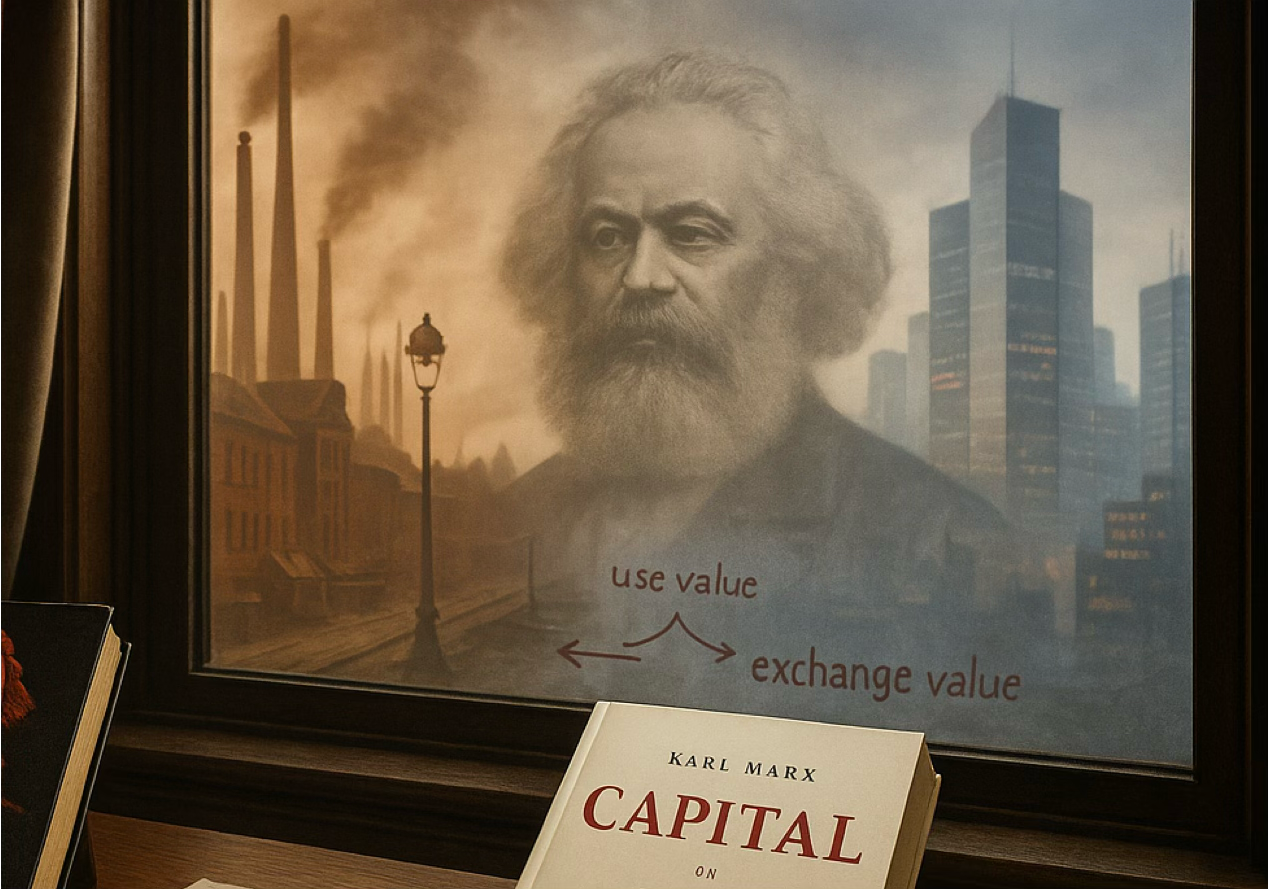A Note: Reitter Translates Marx as He Was
Translation is intellectual engineering: accuracy and consistency are key: choose fidelity. Reading Marx without apocalyptic filters imposed because who he was does not suit present-day purposes…
Ben Burgis attacks Paul Reitter’s new translation of Capital as clunky and misguided. But what “clunk” there is Marx’s own 1800s-era machinery, and Reitter’s sin is keeping it intact. If you want to think with Marx, you need his gears—not some modernized vibe chosen to mesh with present-day imaginings about political purposes.
Procrastinating on the Day Job this AM, by going back to Ben Burgis’s hatchet job on the new Reitter translation of Marx’s Capital, vol. 1…
Burgis’s claim: “if this really does replace the 1976 Ben Fowkes translation (used in the Penguin edition) as the “standard” English-language Capital, Marx’s English-language readers will be vastly worse off”…
<https://benburgis.substack.com/p/in-defense-of-the-fowkes-translation>
Why? Burgis’s complaints against Reitter are: “[(a)] the extra material isn’t all it’s cracked up to be… [(b)] this translation does a worse job than the Fowkes of capturing Marx’s intentions… [and ©] on a sentence-by-sentence level, much of the writing is just awful…”
I reject the complaint that it is a bad thing that the Reitter translation has extensive notes—they are at the back, and unlike, say, Ernest Mandel’s interminable and mendacious introduction, do not get in the way of the reader. And they are very good and thoughtful.
The “capturing Marx’s intentions” claim is that Fowkes got it right in translating the German fourth edition, and Reitter got it wrong in translating the German second edition. The German fourth edition is what Engels thought was the best form to put Marx’s (and his) ideas in, as he tried to publish texts to spark and support the social movement that was Second Socialist International communism (1889-1914). The German second edition is Marx’s last finished ms. There is also the French edition: later than the German second, approved by Marx, but with Marx’s complaints that French was not a language in which you could say what Marx wanted and needed to say. Perhaps the German text underlying the French edition would be ideal. But we do not have it.
And so, in the end, after stripping off side-issues and absurdities, Burgis’s complaint against the “awful” writing “on a sentence-by-sentence level” is simply… weird. I cannot put it otherwise.
Burgis gives four examples in which he claims that “the quality of the writing has taken a nosedive”.
For one, Paul Reitter assures me in email that “hover” is a much better translation of the actual German than Fowkes’s “dangle”.
For a second, Burgis complains that the rhythm of a sentence is worse when Reitter writes “is a historical act” where Fowkes has “is the work of history”; I don’t see it.
For a third, Burgis objects to Reitter’s use of m-dashes and of “properties” rather than “qualities”, “wants or needs” rather than simply “needs”, “belly” rather than “stomach”, and “doesn’t matter here” rather than “makes no difference”; again, I simply do not see it.
But there is some meat in Burgis’s fourth example of “awful” writing:
Fowkes: The taste of porridge does not tell us who grew the oats, and the process we have presented does not reveal the conditions under which it takes place, whether it is happening under the slave-owner’s brutal lash or the anxious eye of the capitalist, whether Cincinnatus undertakes it in tilling his couple of acres, or a savage, when he lays low a wild beast with a stone.
versus:
Reitter: But how wheat tastes doesn’t tell us who grew it, and looking at the labor process in this way tells us just as little about the actual conditions in which it is carried out: whether it runs its course under the slave overseer’s brutal whip or the capitalist’s watchful eye, whether it is Cincinnatus who completes a labor process by tilling his couple of jugera or a savage who does that by slaying wild beasts with a stone.
With Burgis commenting: “There is, I’m sorry, no excuse for that…”
No excuse for what?
And I think.
And I think I get it.
Paul Reitter makes Karl Marx a voice from the 1800s: an old text by a dead man, a man who likes to show off his learned classical education by name-checking Roman Republic-politician Lucius Quinctius Cincinnatus (cos. suff. -460, dic. -458 & -438). And a man who then does more: dropping into Latin in the belief that the readers he wants will understand him when he talks about how L. Quinctius Cincinnatus plowed his iugera rather than his “couple of acres”.
And that is something the Burgis cannot cope with. But there is a problem: Marx is a voice from the 1800s. It is an old text by a dead man, talking about human society in a time now long gone. Marx did like to show off his learned classical education. He does like to name-check Roman Republic-politician Lucius Quinctius Cincinnatus (cos. suff. -460, dic. -458 & -438). And he would rather drop into Latin to write iugera rather than acres.
Thus Burgis’s complaint is not against Reitter. It is against Marx. It is against Mar having been who he was. And against Marx for having written the book that he did. And for Reitter for having tried to translate it faithfully.
But I do need to note, here, the side issues. I mean the:


